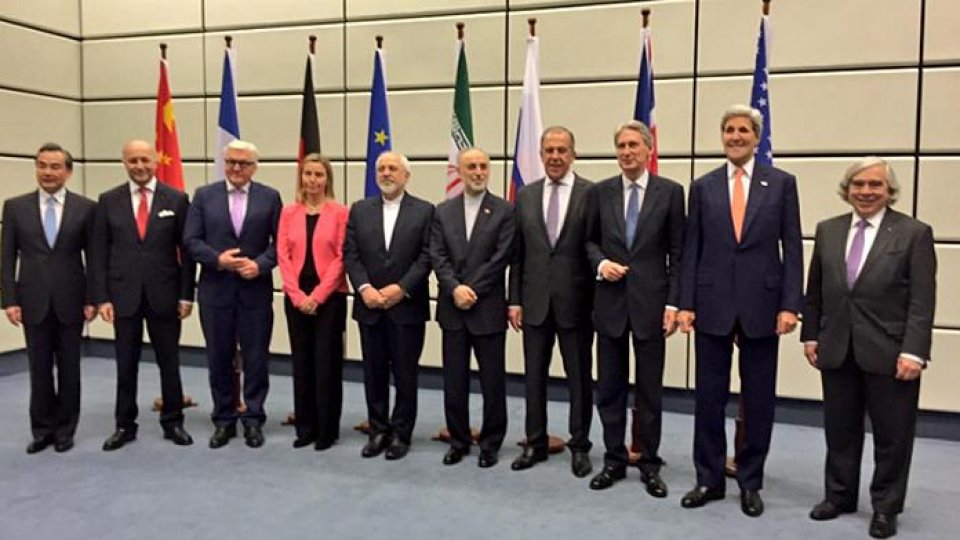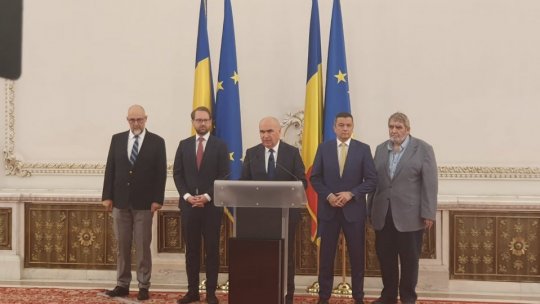Reactions to the Iran Nuclear Agreement
The international community has hailed the historic agreement on Iran’s nuclear activity.

Articol de Radio România Internaţional, 16 Iulie 2015, 09:58
It took 21 months of negotiation for Iran and the Group 5+1 to reach an agreement on Iran’s nuclear programme.
If endorsed, the program will gradually dissipate fears regarding Iran’s military nuclear ambitions and will result in lifting international sanctions imposed on this country.
US president Barack Obama said the programme was not build on trust, but on verification, and that the team of international inspectors would now have 24-hour access to key nuclear facilities in Iran, in order to make sure Iran doesn’t transfer any nuclear material to hidden facilities.
The historic agreement struck in Teheran was also praised by NATO, which believes it will strengthen international security.
In Bucharest, the Romanian Foreign Ministry hailed the agreement, and believes the key to its success is the full implementation of all provisions, so that the international community could have irrefutable guarantees of the peaceful nature of Iran’s nuclear applications, in line with Iran’s legitimate right to use nuclear energy for non-military purposes.
Moscow was quick to capitalize on the momentum created by the signing of the agreement to revert to one of the issues that has been worrying it for some time – the US anti-ballistic shield in Europe.
The Russian Foreign Minister, Serghei Lavrov said Russia expected the United States and NATO to cancel their plans to deploy anti-ballistic elements in Europe, in the context of the agreement Iran has concluded with the world’s six superpowers in the field of nuclear energy.
We recall that Moscow has repeatedly expressed concern regarding anti-ballistic elements to be deployed in Romania, Poland, Spain and Turkey.
The Russian Security Council Secretary Nikolay Patrushev has recently said that NATO’s anti-ballistic shields are targeting Russia and China.
“Ballistic threats to NATO are on the rise. Numerous countries now hold or are trying to obtain ballistic technologies.
The international agreement with Iran will not bring any changes in this respect”, a NATO official was quick to respond. NATO says the shield will protect allies in Europe against ballistic threats, and its legitimacy stands as long as ballistic missiles exist, being capable of targeting NATO’s European flank.
The purpose of the shield is to counter all threats from outside NATO. The United States and NATO have repeatedly confirmed that anti-ballistic interceptors deployed in Europe do not target Russia, but are meant to respond to threats from countries that do not comply with international regulations.














